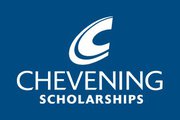Scholarship Name: Chevening Scholarship
Brief description
The Association of Commonwealth Universities is offering the Chevening Scholarships for one year postgraduate Masters course to study any discipline at UK Universities 2013/2014
Accepted Subject Areas?
Chevening Scholarships are awarded across a wide range of fields; including politics, government, business, the media, the environment, civil society, religion, and academia in any UK University
About Scholarship
The UK Foreign and Commonwealth Office Chevening Scholarship programme was established in 1983 and is now an internationally prestigious scheme with over 41,000 alumni. In 2011-12 there were over 700 Chevening Scholars studying at universities across the UK. Chevening Scholarships are currently offered in approximately 110 countries. Chevening awards enable Scholars to study a one-year postgraduate Master’s course in any discipline at any UK university.

The Chevening programme makes awards to talented individuals who demonstrate the potential to become future leaders, decision makers and opinion formers.
Scholarship Offered Since: 1983
By what Criteria is Selection Made?
Chevening Scholarships are for high-calibre graduates with the personal, intellectual and interpersonal qualities necessary for leadership. You will need to demonstrate that you:
- have the personal, intellectual and interpersonal qualities necessary for leadership in your home country
- are motivated to develop your career in order to establish a position of leadership in your own country within ten years of your Scholarship
- have a clear post-Scholarship plan, outlining your career objectives and how you plan to achieve them
- are committed to networking to find global solutions
- are committed to networking within the Chevening community, via online engagement and attending Chevening events in the UK and engaging with the alumni network in your home country
- are able to use your studies and experience in the UK to benefit yourself, your country and the UK
- are capable of successfully undertaking and completing your proposed course of study in the UK
Who is qualified to apply?
There are no age restrictions for Chevening Scholarships. To qualify for a Scholarship, you must:
- demonstrate that you have achieved a minimum English language requirement (see link below) at the time that you submit your application
- be a citizen of a Chevening-eligible country at the time of applying for the award, and intend to return there at the end of the period of study
- hold a degree that is equivalent to at least a good UK second-class honours degree. Further information on UK degree equivalency can be found from UK NARIC
- have completed at least two years’ work or equivalent experience by 30 September 2012
If you do not meet the above criteria please do not apply. Your application will not be considered.
How Many Scholarships are available? Several (over 700 studying in UK as at 2011/2012)
What are the benefits?
A full Chevening Scholarship award normally comprises:
- payment of tuition fees;
- travel to and from your country of residence by an approved route for you only;
- an arrival allowance;
- a grant for the cost of preparation of a thesis or dissertation (if required);
- an excess baggage allowance;
- the cost of an entry clearance (visa) application for you only;
- a monthly personal living allowance (stipend) to cover accommodation and living expenses. The monthly stipend will depend on whether you are studying inside or outside London. It is currently £917 per month outside London and £1134 per month inside London (subject to annual review).
How long will sponsorship last? For one year
Eligible African Countries
See list of eligible African countries: http://www.chevening.org/maps/africa
See list of other countries: http://www.chevening.org/maps/
To be taken at (country): UK Universities
Application Deadline
December 2012 (but specific dates varies from country to country. For example, the deadline date for Nigeria is 14 December 2012). Select your country from link above for specific instructions
We recommend that you submit your application as early as possible – preferably well before the closing date for your country.
Offered annually? yes
How can I Apply?
To apply for a Chevening Scholarship, you must complete and submit an online eChevening application form
Be sure to visit this page for Guidelines for Applicants before applying
English language requirement
In order to apply for a Chevening Scholarship you must demonstrate that you have achieved a minimum level of English language ability at the time of application (unless you fall into one of the exemption categories below or if there are no English language test centres in your country and special arrangements therefore apply). The minimum English language requirement is as follows:
Academic IELTS
Overall score – 6.5, with a minimum score in each component of: Listening – 5.5; Reading – 5.5, Speaking – 5.5, Writing – 5.5
Pearson PTE Academic
Overall score – 58, with a minimum score in each component of: Listening – 42, Reading – 42, Speaking – 42, Writing – 42
TOEFL iBT
Overall score – 79, with a minimum score in each component of: Listening – 17, Reading – 18, Speaking – 20, Writing – 17
Sponsors
Chevening Scholarships are funded by the Foreign and Commonwealth Office (FCO), with further contributions from universities and other partners in the UK and overseas, including governmental and private sector bodies.
Important Notes:
You must set out clearly in your Personal Statement on the application form how you believe you meet the Chevening selection criteria




